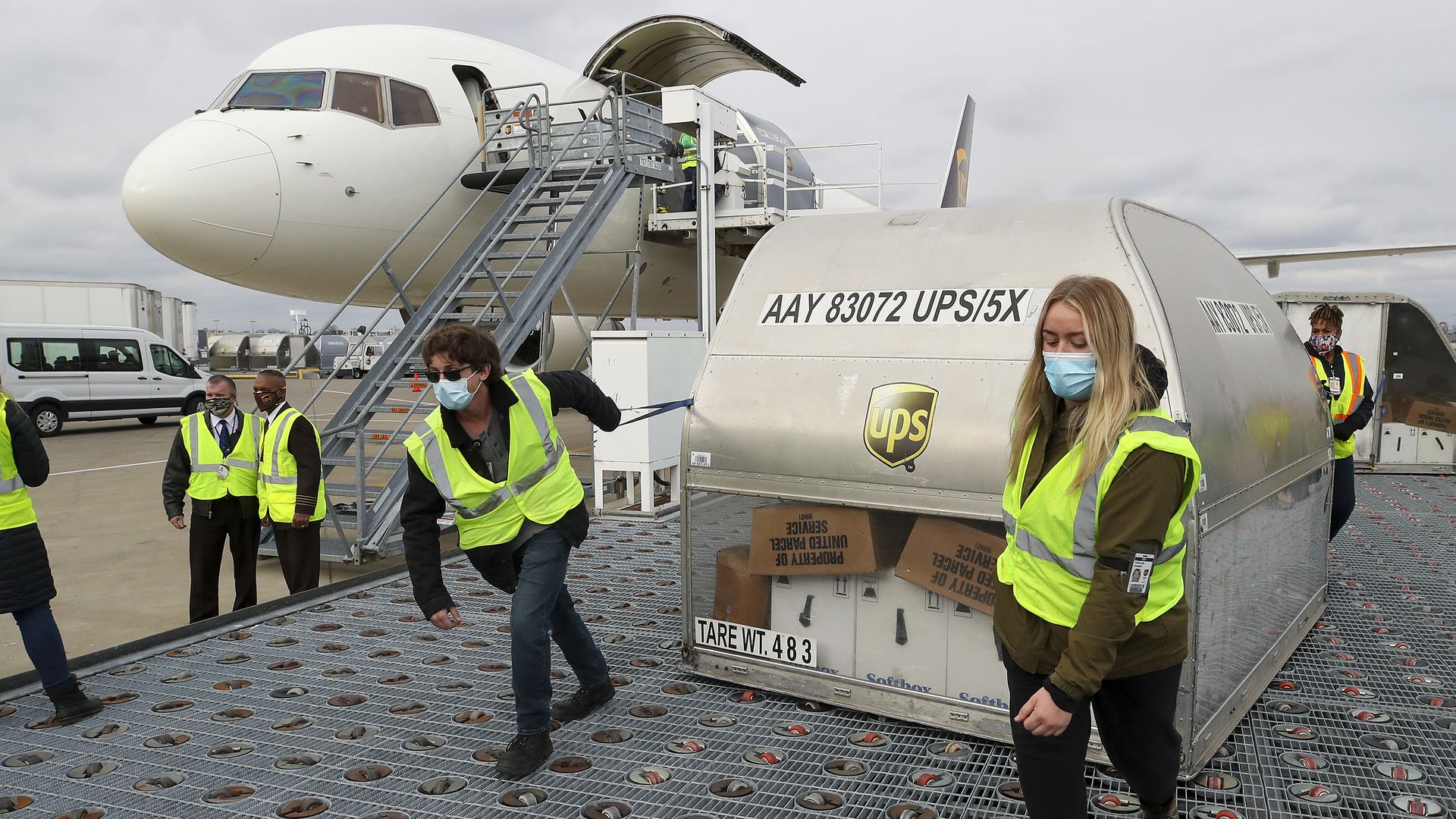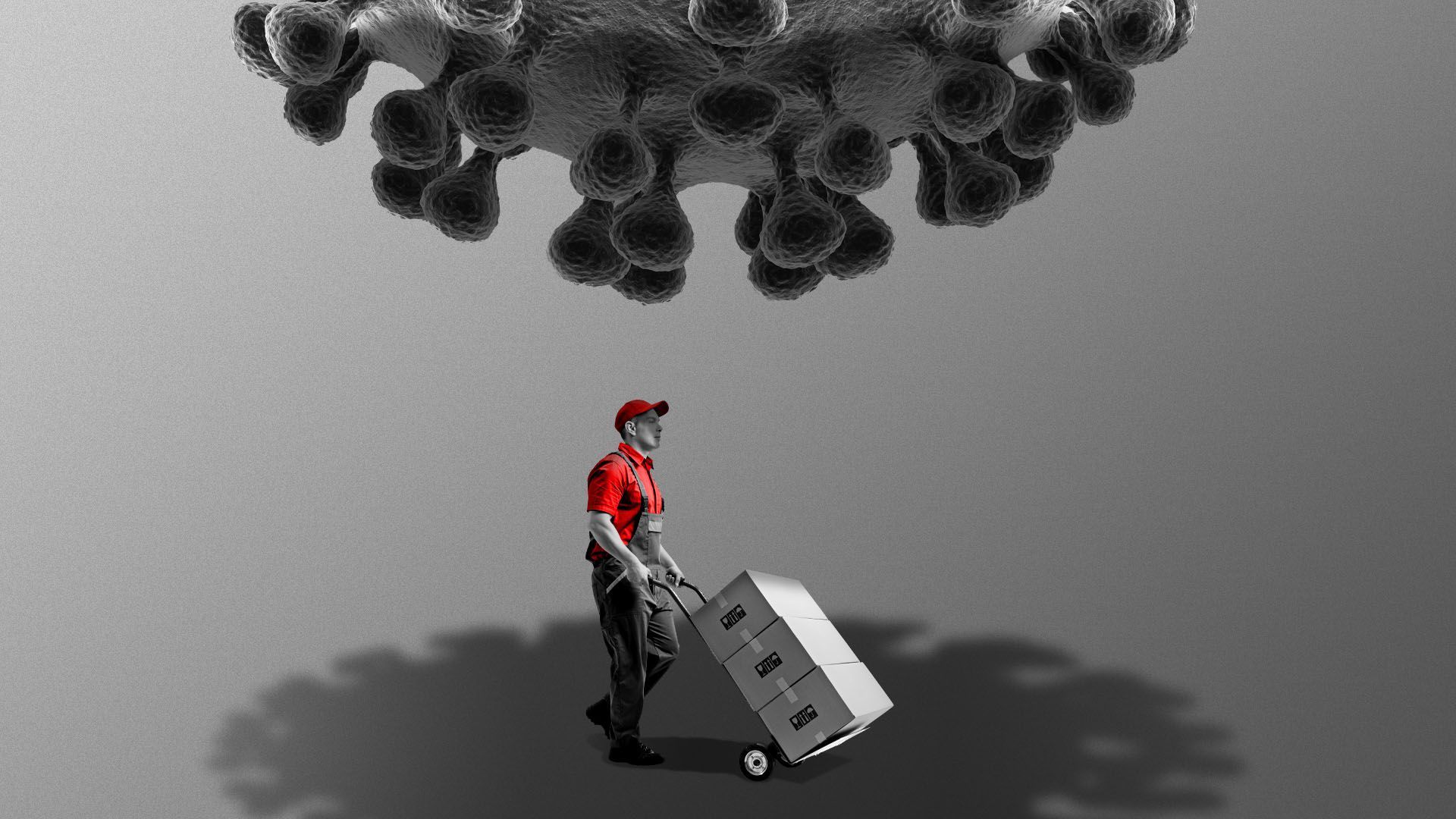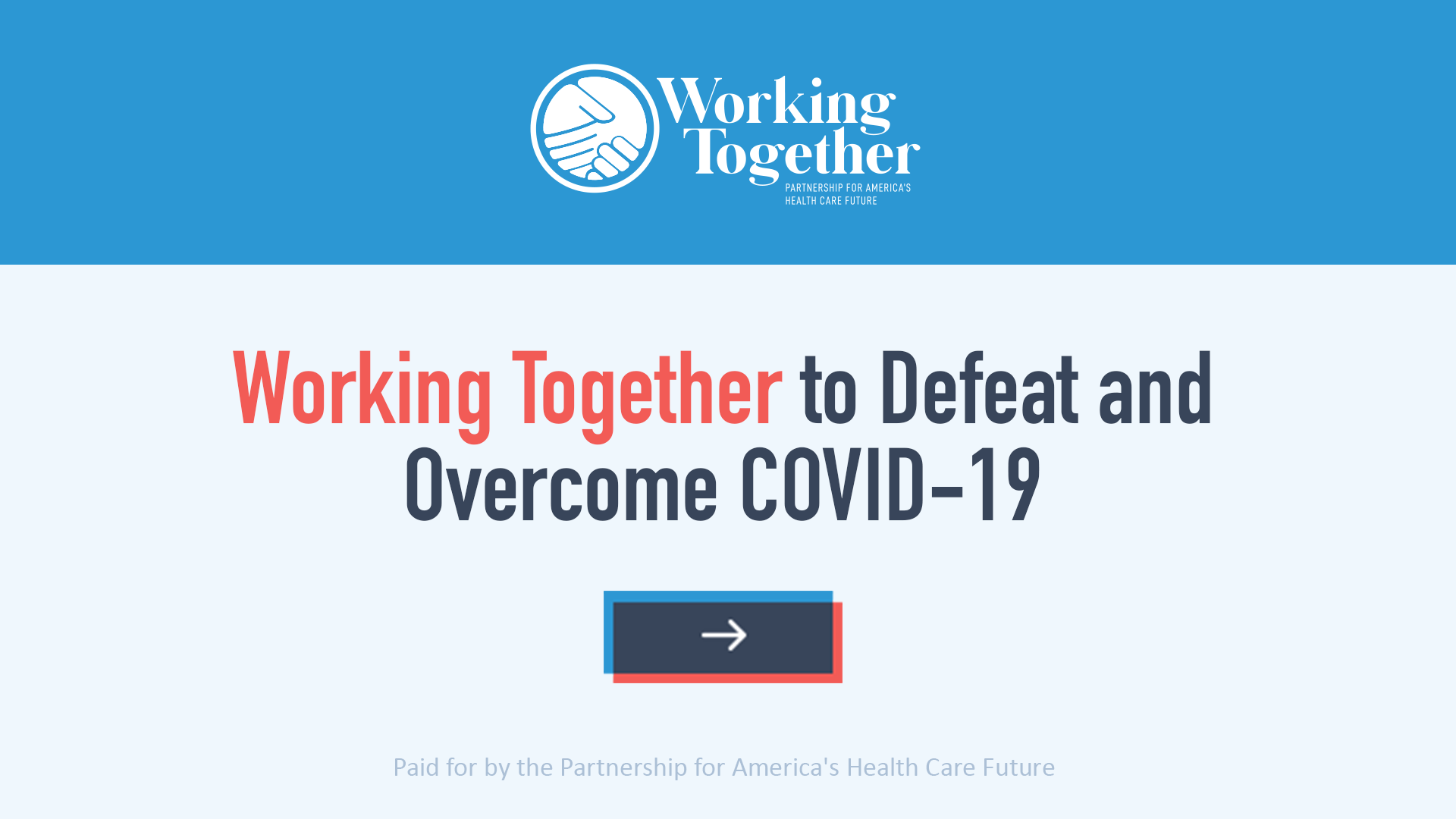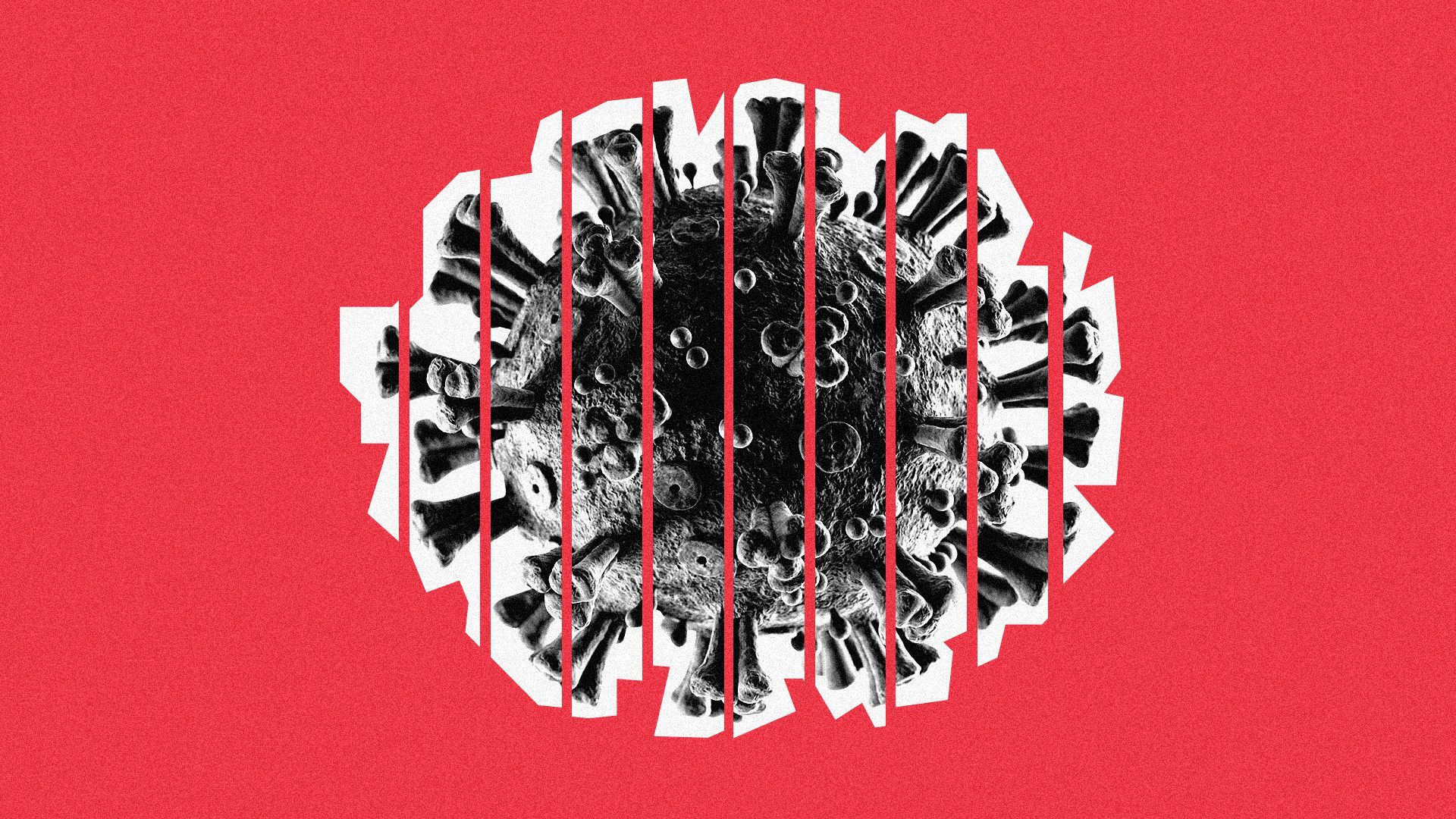| | | | | | | Presented By Partnership for America's Health Care Future | | | | Vitals | | By Caitlin Owens ·Dec 14, 2020 | | Good morning. Join Axios' Kendall Baker tomorrow at 12:30pm ET for a virtual event on the impact of physical fitness and wellness on public health, featuring Long Beach Mayor Robert Garcia and former U.S. surgeon general Richard Carmona. Today's word count is 1,164, or a 4-minute read. | | | | | | 1 big thing: Vaccine distribution plan raises ethical questions |  | | | UPS employees move a shipping container containing the first shipments of the Pfizer and BioNTech COVID-19 vaccine in Louisville, Ky. Photo: Michael Clevenger/Getty Images | | | | The first vaccination sites are expected to receive coronavirus vaccines today, the next step of an extraordinary endeavor that's brought us to the beginning of the end of the pandemic. Yes, but: The virus continues to devastate communities across the country at record levels, causing some experts to question the ethics of how the government is distributing the first vaccines. What's happening: The initial batch of doses available to Americans is extremely limited, and each recipient must get two shots. - That means that of of the 6.4 million available doses of Pfizer's vaccine, roughly half are being sent out at first — 2.9 million, per NYT. The other half will be distributed in a few weeks, to ensure that recipients receive their second shot 21 days after the first.
Yes, but: Some experts question whether any doses should be held back given how acute the crisis is, and how many vulnerable people's lives may be saved by receiving even one dose of the vaccine. - Pfizer has promised 20 million doses will be available by the end of the year, making the decision to hold some of the initial doses back even more ethically fraught, the experts say.
Details: Pfizer's clinical trials results have indicated that even one dose of its vaccine confers some degree of protection upon the recipient. - "We know the first dose is partially protective," former FDA commissioner Scott Gottlieb told CNBC's Squawk Box. "You want to try to push out as many doses as possible to give as many people as possible some benefit."
The other side: "The reason why we're holding on to the second dose as well as some reserve is that we don't have absolute confidence in the cadence ... it is such a delicate process, we want to ensure perfection in the vaccine," U.S. Army Gen. Gustave Perna, who is with Operation Warp Speed, told reporters on Saturday. |     | | | | | | 2. A larger question on dosing | | There's a larger scientific conversation around how to handle the clinical trial results. What they're saying: Some scientists have warned emphatically that giving only one dose to people is a bad idea, even if it'd double the number of people who could be vaccinated in the short term. - "It will be an absolute disaster if a large number of people only take one dose of the vaccine. It is very likely that protective immunity will wane rapidly in individuals who only take the first shot and efficacy will be nowhere near the 95% reported after the two-dose regimen," tweeted Carlos del Rio, executive associate dean for Emory School of Medicine & Grady Health System.
- "Too much uncertainty in short- and long-term efficacy," agreed Natalie Dean, a professor specializing in vaccine study design at the University of Florida. "And the optics of changing the plan now, for a regimen that hasn't been tested directly, are not great."
But some argue that we should at least study a one-dose regimen. - "*IF* a single dose DOES work in less vulnerable [people] and IS sufficiently durable (even if not perfect), it might mean vaccinating billions of additional people in 2021 & reach herd immunity faster," tweeted Michael Mina, a professor of epidemiology at Harvard University.
|     | | | | | | 3. The daunting task of defining essential workers |  | | | Illustration: Sarah Grillo/Axios | | | | It's generally agreed that essential workers should be toward the front of the coronavirus vaccine line due to their high risk of infection, but states will soon have to decide how to order different occupations. Why it matters: Millions of Americans are considered essential workers, but not all of them can be at the front of the vaccine line when there will be such a limited initial supply. What's happening: "It's been a free-for-all in recent weeks as manufacturers, grocers, bank tellers, dentists and drive-share companies all jostle to get a spot near the front of the line," Kaiser Health News reports. - "Tough choices lie ahead, such as: Is it more important to prioritize teachers who come into contact with many people each day, or farmworkers, who can't work remotely and provide the country's food?" KHN writes.
Between the lines: States, which will ultimately make prioritization calls, are signaling different priorities. - Florida Gov. Ron DeSantis has said that after frontline health care workers and nursing home residents, people over 65 and those with significant health conditions will receive vaccines.
- Kentucky Gov. Andy Beshear, on the other hand, said grade school teachers should be next, along with first responders and adults with significant illnesses.
The big picture: It's not just about what occupations should receive priority; disease advocacy groups are also lobbying for their patients to be at the front of the line. Go deeper: Jumping the line for a vaccine will be pretty easy |     | | | | | | A message from Partnership for America's Health Care Future | | Working together to defeat and overcome COVID-19 | | |  | | | | During this critical time, America's leading doctors, nurses, clinicians, hospitals, health insurance providers, biopharmaceutical companies and employers are committed to working together to defeat and overcome COVID-19. Learn more about their efforts. | | | | | | 4. 11th-hour agreement on surprise medical bills | | Key congressional committees on Friday announced that they've reached an agreement on how to prevent patients from receiving surprise medical bills. Between the lines: This doesn't guarantee that the measure will become law, but it's a crucial step forward on an issue that resonates deeply with many Americans. Details: Surprise medical bills usually stem from out-of-network provider visits, often to the emergency room or at in-network facilities. Patients are billed the difference between what a provider has charged and what an insurer will pay. - The compromise legislation would require patients to pay only the in-network cost-sharing amount in these situations.
- Providers and insurers would have 30 days to negotiate a payment rate, and if they can't reach an agreement, they can undergo an arbitration process.
What they're saying: The American Hospital Association last night issued a statement saying it still has some qualms with the legislation, even though it includes the provider-supported arbitration approach over the insurer-supported benchmark payment. - "We urge you to consider several modifications to the dispute resolution process to reduce burden on all parties and ensure fair consideration of offers," the AHA wrote, adding that it also has "significant concerns" with some of the legislation's transparency and billing provisions.
- "We continue to believe strongly that any real solution must be clear and straightforward for consumers, and must protect patients by relying on fair, market-based prices based on locally negotiated rates — without loopholes," America's Health Insurance Plans said in a statement.
|     | | | | | | 5. Catch up quick |  | | | Illustration: Aïda Amer/Axios | | | | Coronavirus vaccinations for U.S. officials across the country's three branches of government have been given top priority, National Security Council spokesperson John Ullyot said in a statement on Sunday. Anthony Fauci, director of the National Institute of Allergy and Infectious Diseases, told the New York Times on Friday that he plans to be vaccinated for the coronavirus in public as soon as a vaccine becomes available to him. Some states expect to make cuts to essential parts of their budgets — like education, transportation and health care — in order to pay for coronavirus vaccine distribution, the Wall Street Journal reports. The Biogen conference held in Boston in late February has been linked to more than 333,000 coronavirus cases, a new study in the journal Science says, calling the two-day function a "superspreader event." People used emergency lodging across the U.S. more than 1 million times in 2020, over four times the annual average during the past decade, the American Red Cross said. Public schools would have to spend between $55 and $442 per student on average to implement COVID-19 safety precautions for in-person classes, the Centers for Disease Control and Prevention calculated on Friday. German Chancellor Angela Merkel said Sunday the country will go into a strict lockdown, shutting down all nonessential stores, services and schools until Jan. 10, CNN reports. South Korea on Saturday reported its highest daily COVID-19 case count since the pandemic got underway, with 950 new cases, according to data from Johns Hopkins University. |     | | | | | | A message from Partnership for America's Health Care Future | | Working together to defeat and overcome COVID-19 | | |  | | | | As we work together to defeat and overcome COVID-19, America's health care leaders are helping American families get healthy and stay healthy by expanding access to the health coverage and care they need during this unprecedented time. Learn more. | | | | | | Axios thanks our partners for supporting our newsletters.
Sponsorship has no influence on editorial content. Axios, 3100 Clarendon Blvd, Suite 1300, Arlington VA 22201 | | | You received this email because you signed up for newsletters from Axios.
Change your preferences or unsubscribe here. | | | Was this email forwarded to you?
Sign up now to get Axios in your inbox. | | | | Follow Axios on social media:    | | | | | |
No comments:
Post a Comment